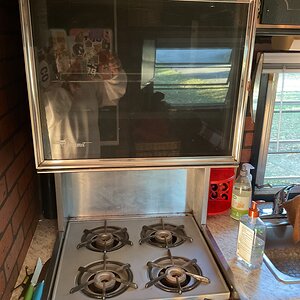Richpatty
RVF Supporter
- Joined
- Nov 2, 2019
- Messages
- 851
- Location
- Wesley Chapel, NC
- RV Year
- 2017
- RV Make
- Newmar
- RV Model
- Ventana 4310
- RV Length
- 43
- Chassis
- Freightliner
- Engine
- 400hp
- TOW/TOAD
- 2007 CR-V
- Fulltimer
- No
We are pretty sure he does not have an inverter/charger, but he HAS to have a converter/charger or there would be no way to charge the batteries.
I think the problem is that we are not sure of what his setup looks like and the thought that he is plugging his trailer into his inverter/battery system, which would be the incorrect way to go about this…
I think the problem is that we are not sure of what his setup looks like and the thought that he is plugging his trailer into his inverter/battery system, which would be the incorrect way to go about this…












